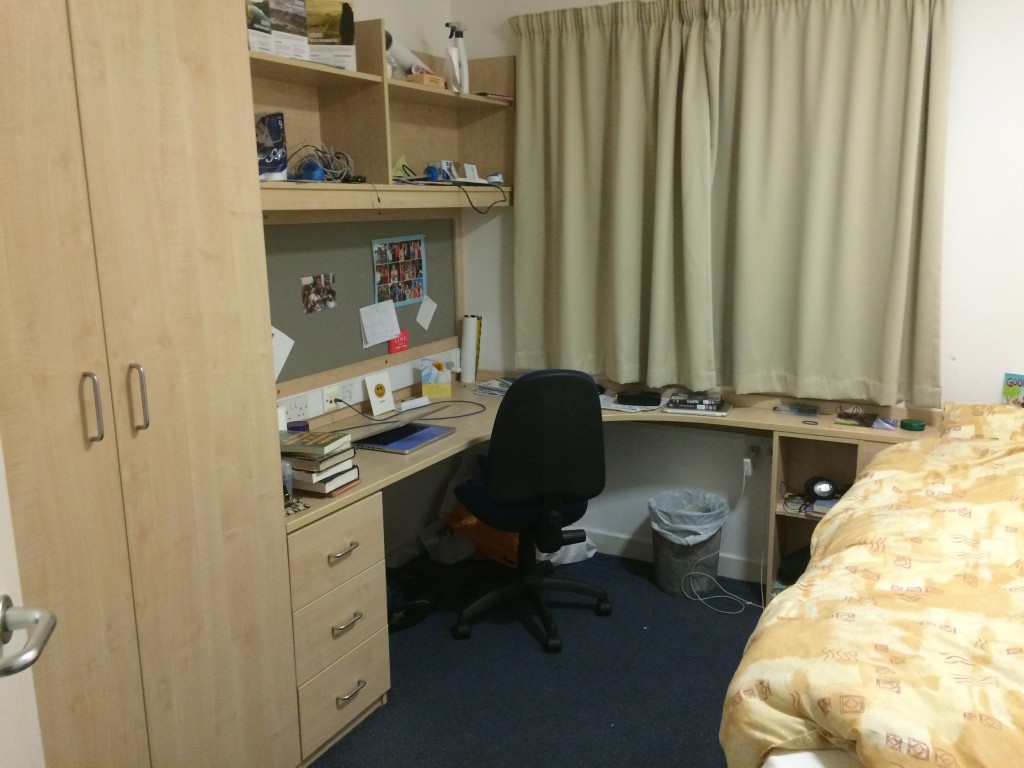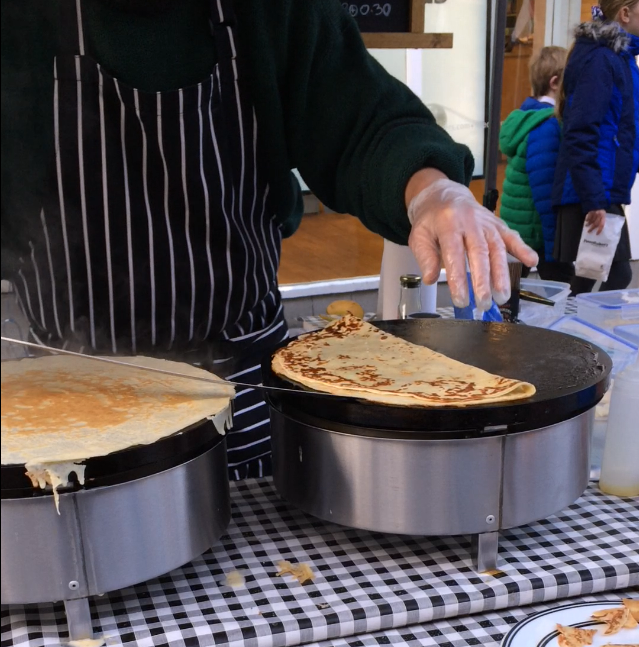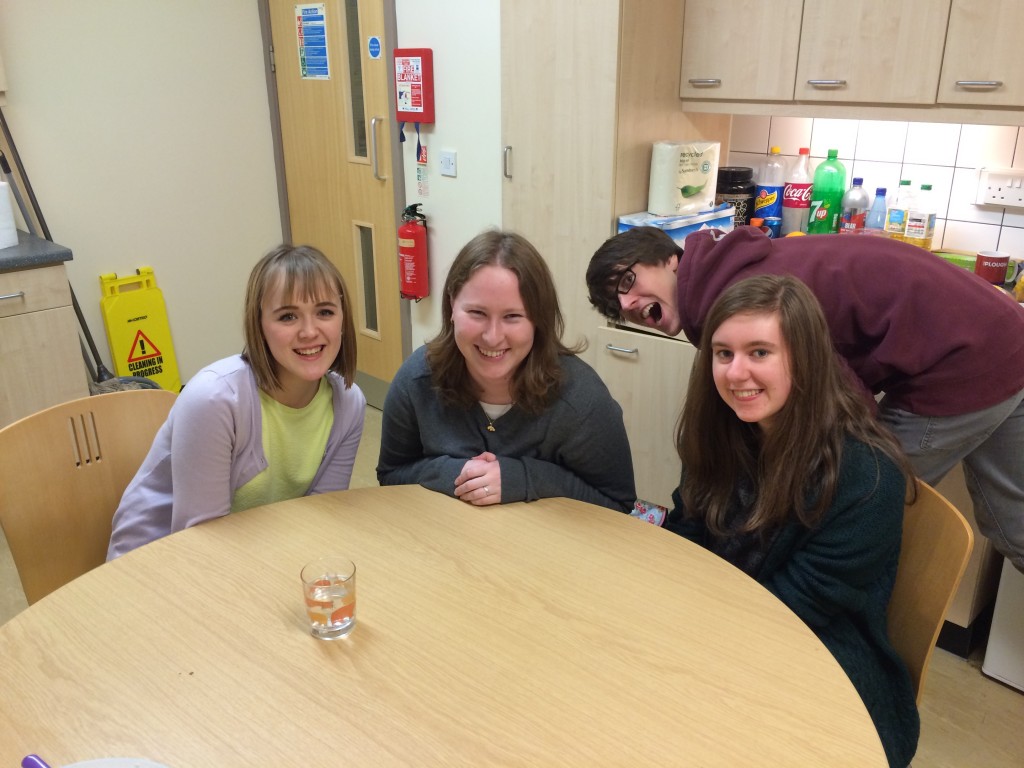Before I left to study abroad, I applied for the University of Iowa’s study abroad scholarships. In one of my short essays that I submitted, I said the following: “I have often found after I visit a place, I remember the people far more than the action or the scenery, and far off down the road, many years from now, I will probably remember the people I met in Lancaster more than any course I take or attraction I visit.”
Even then, I didn’t know how important the people in Lancaster would become to me. I didn’t know how much I would come to love them. And now, after almost six months abroad, I am preparing to go back home to the US. Part of me doesn’t want to think about saying goodbye to these people, but the other part of me has already begun looking back on my experiences here and savoring the memories that have formed. I’m not very good at goodbyes. I smile sadly and give hugs, but the emotions don’t really hit me until the goodbyes are done and I’m on my own. So, to make up for this, I want to say my goodbyes to these people in the way I best express myself: through writing.
Jan. You were my British mom. You drove me to church and to the train station, gave me hugs when I so needed them, and just became the mothering presence I found myself missing during these six months away from home. When you began to cry during our farewell dinner, it broke my heart. Thank you for welcoming me, looking after me, and making sure I saw more of Lancaster than just the university campus. (And also for all the free rides that saved me so many pounds). Of all the relationships I hoped to build when I arrived in England, you were the most surprising. I never imagined I’d get my own “mum.” So thank you for that.
Tom. Thanks for sitting with me in the kitchen while we worked, for keeping me motivated. The knowledge that you were next to me studying forced me to actually study instead of goof off. A small confession: almost every prank Aaron played on you was either my idea or involved my help. I am far from innocent in our flat prank war. Putting all your food from the pantry into your room? Yeah, totally my idea. I’d apologize, but it was honestly really fun. And you did retaliate after all. I also vow if I ever become Supreme Ruler of the World, I will gift you a lifetime supply of strawberries. I’ll miss you constantly giggling and all the flat banter you provided. Be good.
Elise. If only I could exude confidence the way you do. I can’t wait to spend my last week in Europe with you in Italy. Your American accent really is fabulous, but not as fabulous as your wardrobe. I’ll miss your killer dance moves and your mile-a-minute Yorkshire accent. Thank you for teaching me that “You alright?” means “How are you?” not “Are you alright?” It was my first lesson in British vernacular. You still owe me, though, for sitting through The Woman in Black with you and Tom. Yes, I spent the whole movie with my face buried in a blanket, but I still sat there with you. So you owe me. When you come study in the US, I promise to visit you. Just one more thing to say: you are the ultimate wife-material.
Aaron. So very many memories. Baking late at night in the kitchen, pranking Tom countless times, playing Quiplash (why is it called “The Last Lash”?) and Fibbage in the corridor. You are so incredibly creative and brilliant. Promise me you won’t ever be afraid to be yourself. Yeah, people may judge you, but that’s their problem, not yours. Thank you for opening up to me and for being one of the few people to consistently give me hugs when I needed them. In a flat full of Freshers, you kept me sane sometimes. Look after the children for me.
Katherine. You were the first English friend I made, the first person in the flat to welcome me. From the moment you said you studied English Literature, we connected. Your sweet, introverted nature helped balance out the craziness of the rest of the flat, and there were times when I really needed that. Thank you for teaching me ukulele and guitar that one afternoon in your blanket fort right before I left; if only we’d started in January instead of June. You are so musically talented, and I hope one day you’ll be able to sing in front of people and share your gift with them. The night in the kitchen when I tried to teach you an American accent is my favorite memory of the two of us. I hadn’t laughed that hard in ages, and I don’t think I have since. Remember, hard R’s, like a pirate. I’ll miss your tiny smiles and your secret sarcasm. Don’t ever change.
Thank you all for being my friends, for helping me adjust to life in a new country and culture, for just being there. I worried, for some reason, that I wouldn’t make friends when I came to Lancaster. How wrong I was. I love you all so very much. I won’t ever forget you. Goodbye.




